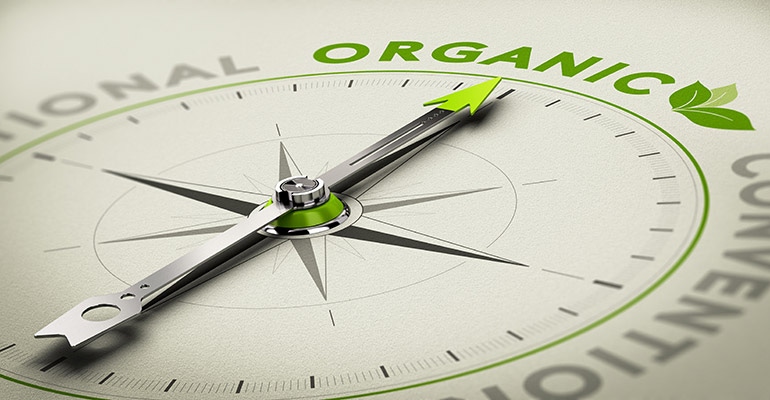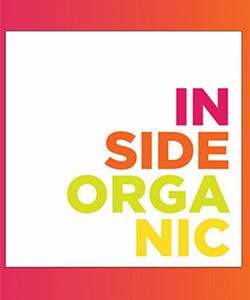Natural product industry experts, brands and data specialists discuss the future of organic.

Natural products industry experts shared recently what’s working in the world of organic, as well as what brands and retailers need to tell consumers about the organic supply chain.
New Hope Network hosted on Aug. 23 the inaugural Inside Organic Summit via a virtual platform. With the organic food market surpassing $63 billion in sales, consumers want to see more transparency about products and organic values.
Social media is taking precedence as a primary outlet for advertising, due to shifting consumer demographics. During the summit, a few noteworthy companies shared what they are doing for the organic movement and talked about why clear messaging is so important.
Regulating food systems
During the summit, multiple brands shared information on how to best encourage awareness around what is shaping the organic marketplace. They included Theo Chocolate, Teatulia, Charlotte’s Web, Farmer Focus and organic ingredient supplier Ciranda, as well as a few natural product retailers such as Thrive Market and Whole Foods Market.
These natural products brands and retailers were joined by leaders from the Organic Trade Association, including Stephanie Jerger, vice president of the OTA and the founder of OTA’s Jedi Council and initiatives, and Angie Jagiello, the director of education and insights for the OTA.
Some interesting takeaways that these and other participants in the forum included the following:
Organic is continuously paired with other certifications such as fair trade, which has become a baseline standard alongside other certifications for many brands.
Some of the top web-searched categories for organic include baby food and plant-based water, such as coconut water.
There is a growing need for more specific communication with consumers about product transparency in the manufacturing and sourcing processes.
Healthy soil fosters food system resilience by creating stable food security, purified water quality, biodiversity, antibiotic and product discovery and increased carbon in the soil for climate change mitigation.
Organic Voices is setting an example for awareness around organic with its social media campaign involving the “World’s Most Skippable Ad” content, which urges consumers to skip the chemicals and go with organic.
Sales insights
Other content featured during the Inside Organic Summit included information about trends in organic sales presented by NielsenIQ, SPINS and the Organic Trade Association.
NielsenIQ highlighted that more consumers are willing to pay for organic products that are premium, sustainable and socially responsible with supply chain transparency.
At the same time, consumers are pursuing clean-label food and beauty products without artificial colors or flavors. Furthermore, there is a substantial shift toward supporting nutritious food.

Additionally, SPINS shared shopping data points regarding natural and organic trends and how inflation has impacted consumer shopping habits. Because of inflation, consumers are more interested in purchasing organic, private label brands. Americans are interested in improving security by reducing spending, exploring different retailers and purchasing products on sale.
For its part, The Organic Trade Association shared valuable information and resources relating to organic standards, including a resource guide, the Organic Wheel of Sustainability. With its J.E.D.I. updates, OTA announced that its new diversity tool kit will be available in the fall. Here are some other takeaways from the OTA:
There are common goals and differences between organic and regenerative, with organic involving a whole system approach for farming and food production to ensure that certified products are grown, processed and handled according to rigorous environmental, health and animal welfare standards.
The need for consumer awareness around USDA Organic, due to its value as the only environmental label in the United States that legally requires third-party certification from farm to finished product.
The ways that organic practices encourage biodiversity, improve soil health and protect natural resources.
How organic agriculture protects families and farmers because it significantly lowers the environmental and dietary exposure to toxic pesticides.
Overall, the Inside Organic Summit provided detail about the growing interest in organic and its positive impact on all types of grocery stores—both conventional and natural. Organic practices are critical to creating products from a transparent and sustainable supply chain. Every consumer choosing to purchase organic has the potential to help contribute to the betterment of the people, the planet and business.
About the Author(s)
You May Also Like




